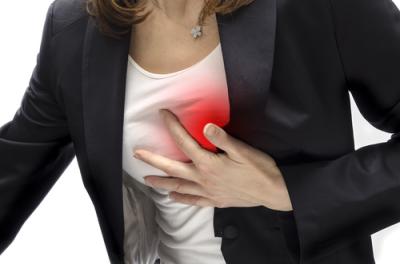The small thing women can do to cut the risks of heart attacks and strokes
Thousands of people reported doing no regular exercise

Experts have said that small bursts of exercise can reduce the risk of heart attacks, stroke and heart failure in women by up to 45%.
Researchers examined the effect of “vigorous intermittent lifestyle physical activity” – brief bouts of exertion that happen in everyday life – on heart health.
These include climbing the stairs or carrying heavy shopping.
The benefits of these bursts of effort, which can also include walking quickly for the bus or walking uphill, were more pronounced in women – with about 1.5 to four minutes a day leading to “substantially lower risks” of heart problems.
Researchers suggest they could act as “a promising physical activity target”, particularly for women who are unable or unwilling to exercise.
The study, published in the British Journal of Sports Medicine, used data from 81,052 middle-aged people taking part in the UK Biobank study, who wore an activity tracker for seven days between 2013 and 2015.
Some 22,368 people reported doing no regular exercise or going for a walk once a week.
Heart health was tracked until the end of November 2022, with researchers collecting details of hospitals admissions or deaths from heart attack, stroke and heart failure.
Of the group who reported little or no exercise, 13,018 were women and 9,350 were men.

During the follow-up period, 331 women and 488 men had a heart attack or stroke, developed heart failure, or died of heart disease.
Women who recorded a daily average of 3.4 minutes of intense activity – but reported no formal exercise – were 45% less likely to have a heart attack, stroke or heart failure compared to women who did not manage any activity.
Specifically, the risk of a heart attack was 51% lower, and the risk of developing heart failure was 67% lower.
Women who reported between 1.2 and 1.6 minutes per day had a 33% lower risk of a heart attack and 40% lower risk of heart failure.
Men who managed 5.6 minutes of these activity bursts a day, but no formal exercise, cut their risk of heart attacks, strokes and heart failure by 16%.
Researchers said that “vigorous intermittent lifestyle physical activity may be a promising physical activity target for cardiovascular disease prevention, particularly in women unable or not willing to engage in formal exercise”.
Join our commenting forum
Join thought-provoking conversations, follow other Independent readers and see their replies
Comments
Bookmark popover
Removed from bookmarks